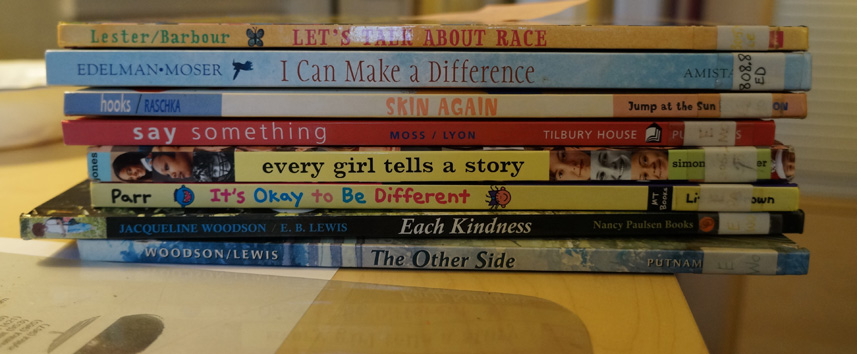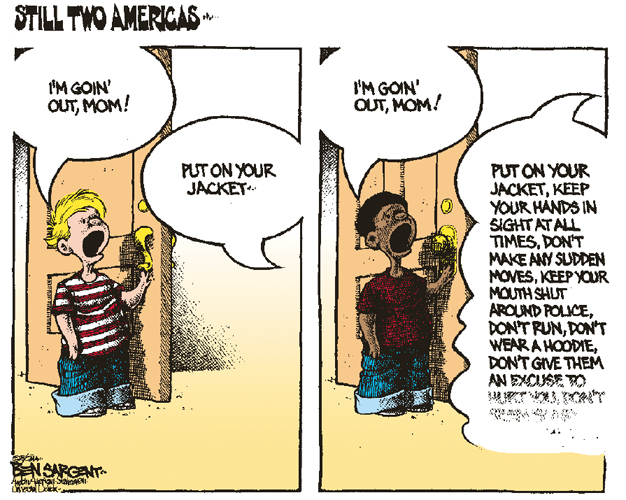A Child Does Not Grow Up Only in a Single Home
From Julia Finney, Principal
Before we discovered Miquon, my children attended a cooperative nursery program in Germantown. It was a wonderful, joyful experience for my kids, and it was transformative for me. They had the benefit of being taught by a diverse group of caring adults, and I learned parenting techniques from skilled teachers and other parents. Foremost, there was a shift in how I operated in the wider world — and through this cooperative experience, I began to see all children as my responsibility.
In public places, I intervened more with children and I judged parents less. The truism that raising children is best done in community — the wisdom of the Banyoro people of Uganda that “a child does not grow up only in a single home” emboldened me to insert myself when I saw harm or injustice in public places. It also inspired me to celebrate with strangers the sweetness and joy of children’s early years. My relationship with other parents softened and grew as I realized that we carry the same fears and hopes, vulnerabilities, and pride in our children. I realized that we are kin.
Now, I am privileged to have the job of nurturing, protecting, and guiding the precious and singular lives of each of our children here at Miquon. In this capacity, I also need to call upon the strength of that kinship.
As our communities become more and more aware of the numbers of unarmed black boys recently killed or gunned down, the injustice and pain of the systemic bias ingrained in the policies and practices of our country must be addressed. We must show our solidarity with the mothers and fathers of Trayvon Martin, Michael Brown, Tamir Rice, Akai Gurley, and too many others. We must act to protect all our children — regardless of their skin color or hoodie or toy in their hand.
What can we do?
See the differences among us. We cannot be “color-blind” in the name of fairness (see more on this topic on this Teaching Tolerance article). Recognizing race does not make you a racist. Martin Luther King, Jr.’s exhortation to judge people by the content of their character and not the color of their skin does not ask us to bypass color or the history of injustice that brought us to this boiling point in our country. Children, to bloom and flourish, must be seen as fully as possible. We all deserve to have our skin color — indeed, all parts of our cultural, religious, sexual and family identity — acknowledged and honored. When one of us is disparaged or considered “less than,” we are all degraded. Recently, our Nursery children spent a couple of weeks mixing paints after a conversation about what color they each needed for their self-portraits. Children can be quite direct, curious, and unburdened about their observations. Acknowledge what your children perceive and encourage their questions.
Talk to your children. “Silence is a racial message” write Eli Michael and Eleonora Bartoli in their article, What White Children Need to Know About Race. When we engage with open ended questions, we allow different perspectives and encourage understanding. Careful listening and not rushing to correct helps us know where to guide the conversation. Teachers in the 4th – 6th grade groups have initiated and also responded to several discussions with children about the events in Ferguson and why there continue to be protests, riots, and civil unrest. This Ben Sargent cartoon was used as a jumping off point in the 5th/6th grade groups.
Teachers of younger children use read-alouds to prompt discussions about fairness and bias and catalysts for change. With stories, children make text-to-self or text-to-life comparisons. The differences among our children and in our community are naturally and respectfully shared. These discussions help children and others around them become more comfortable speaking up for themselves and others. (Our teachers recommend a host of books for you to share with your children as a means for starting discussion at home, among them Let’s Talk About Race by Jules Lester, and Adventures of Sparrowboy by Brian Pinkney and The Skin You Live In by Michael Tyler.)
Raise an upstander. Even our youngest children are taught to help when someone is hurt; to ask them what they need and try to make it better. We know from research that the human instinct of empathy can be modelled and cultivated. At Miquon, we get there by using children’s curiosity. “How do you think she is feeling?”, “How do you know?”, “What do you think she needs?” are the simple questions that can begin a life-long pursuit of social justice. Developing authentic bonds across age groups and other differences in our community are a crucial component to building active citizens. It becomes natural to speak up when someone you can personally relate to is injured.
Take action. We are talking as a staff about what more we might do for our country right now — whether it is joining a protest, writing elected officials, or strengthening partnerships with other organizations or schools. This April, I am very proud that Miquon will host Elementary School Diversity Day for 3rd-6th grade children, where we will explore issues of diversity and inclusion. We expect students from seven area schools to attend and join workshops and activities that “deconstruct their ideas and concepts of difference, while helping them to rebuild their world to see and understand similarities and increase appreciation.” We know that despite the gains our country made during the Civil Rights movement, there is much much more work to be done toward true equity.
I welcome your ideas on what more we — as a community, or as individuals — can do to build understanding, compassion, and justice into our society. Speaking with other educators and my colleagues here at Miquon has restored my belief that our job (as one of our teachers told me today) is to cultivate the soil, plant the seeds, and water them. We cannot concern ourselves with whether the mighty trees we desperately need will grow. Right now, we must water our seeds. Please help us.


One Response to A Child Does Not Grow Up Only in a Single Home